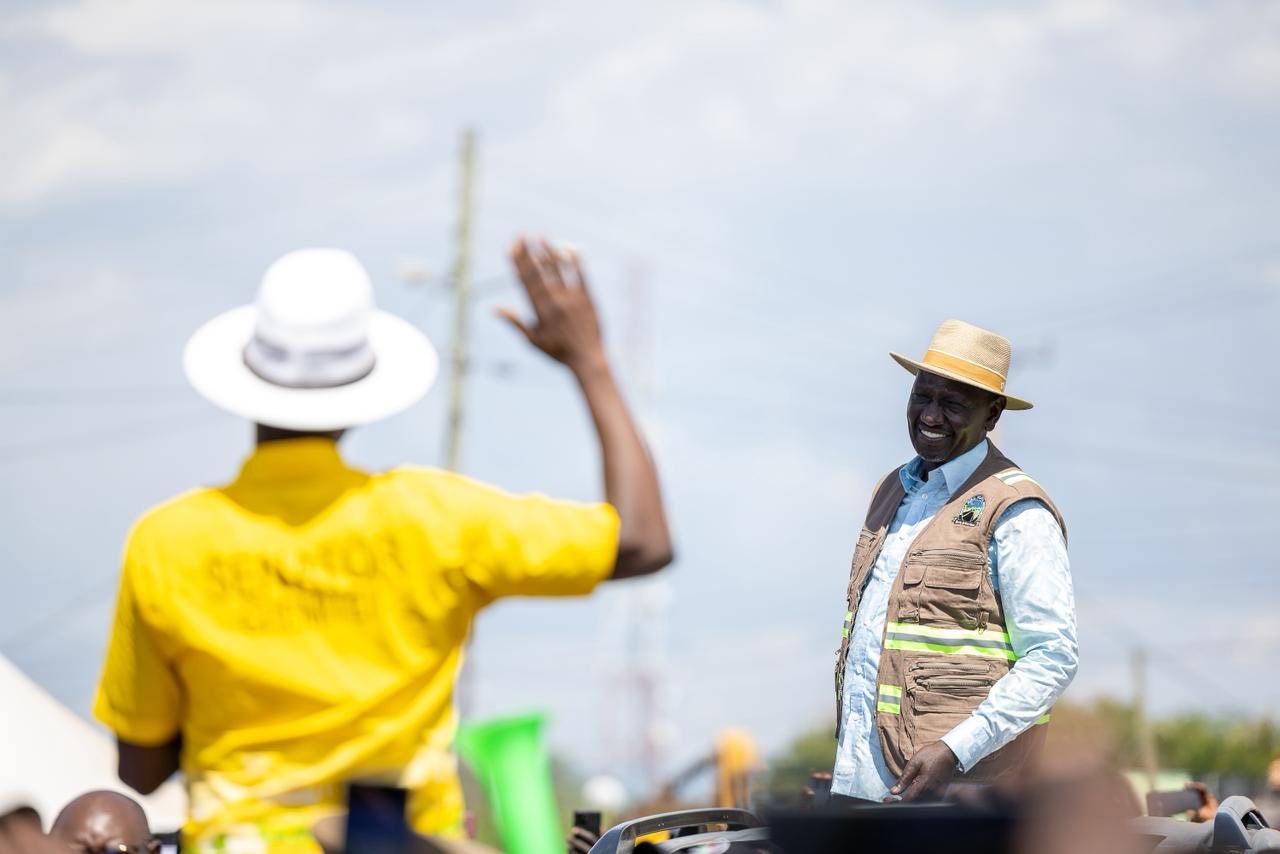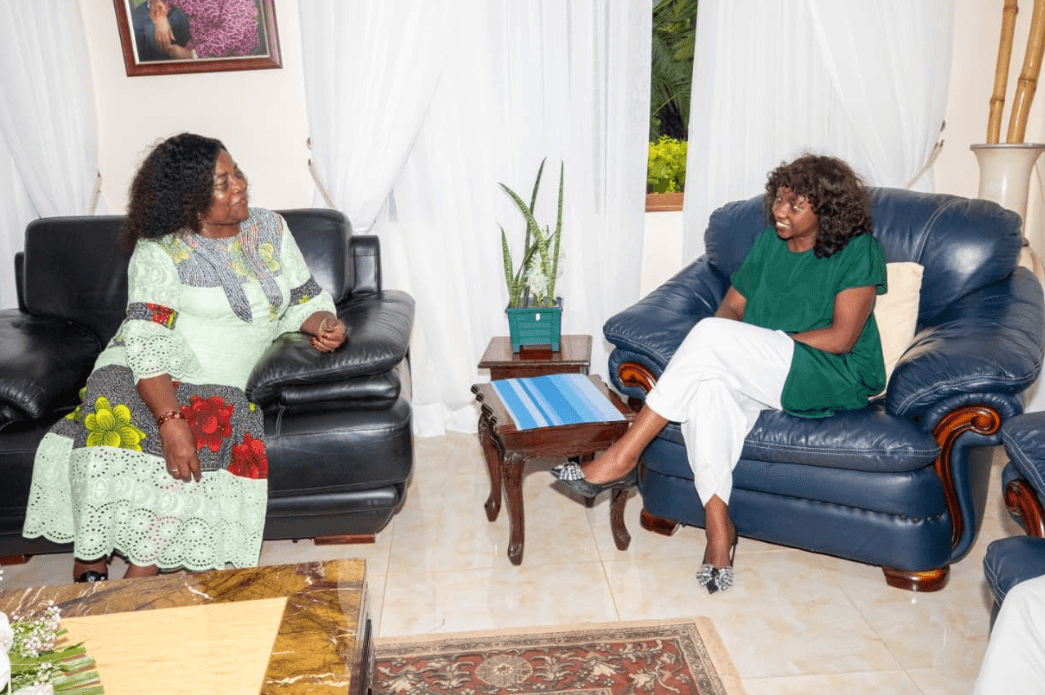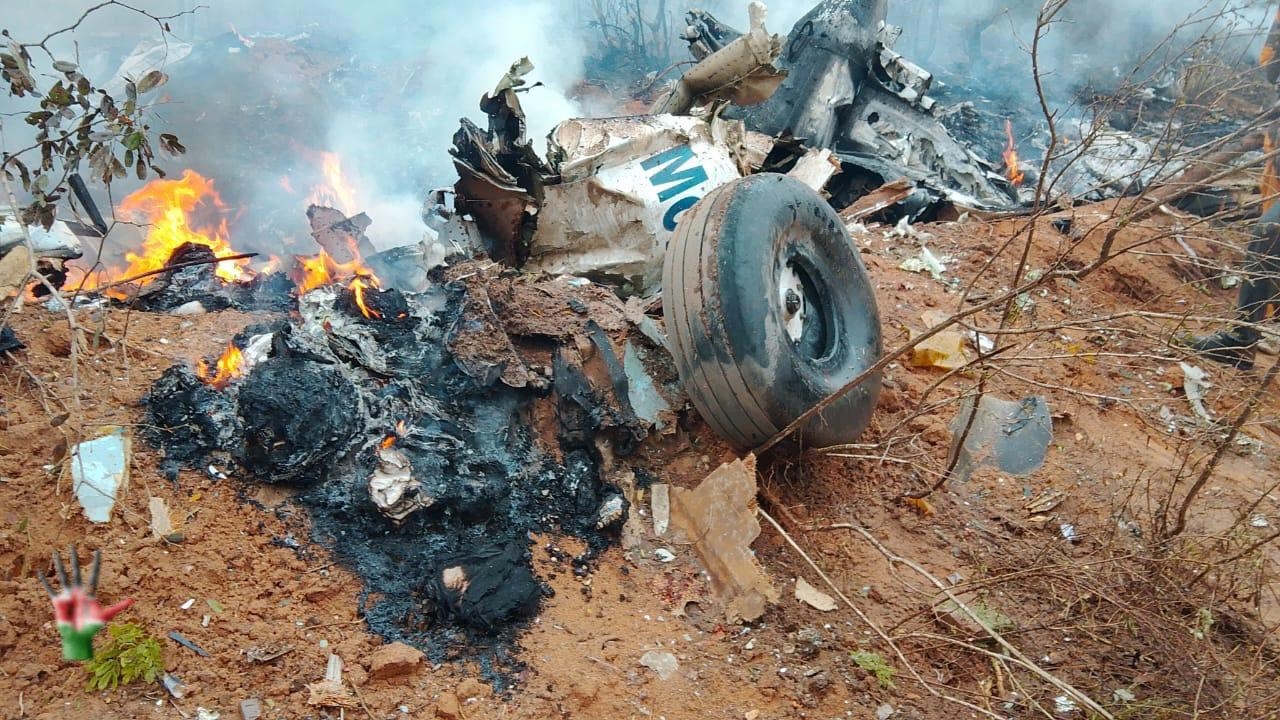Virginia Wambui, 39, suffered a drastic turn in life when her husband died, leaving her as a young widow.
Wambui’s husband was killed in a road accident, and his remains were taken to a public morgue in Nairobi county.
She was only 23 years old at the time and had a newborn child, her firstborn, when the tragedy struck.
As she dealt with grief, Wambui would make visits to the morgue to see his remains as a way of mourning.
But Wambui did not like the way his body was preserved as it kept deteriorating at the facility.
She wondered if there was a better way of ensuring people were decently preserved as a way of paying them their last respects, and therein was born a passion to be a mortician.
“I just wanted to help preserve people better as they await their final rites,” she told the Star.
She, however, did not act on her desire to work in a morgue until later, when she got a job as a casual cleaner at Kenyatta University funeral home.
The morgue was by then new and Wambui would interact with the workers, getting a glimpse of what the job entailed.
Listen to the podcast here.
The job came so naturally to me. I did not struggle with it at all. It gave me immense joy to know I was doing everything I could to serve the departed and ensure they were well kept
As a young girl, Wambui thought the job was done by drunkards and people who were always under the influence of illegal substances.
But at the KU morgue, she realised that morgue attendants are sober professionals with academic qualifications.
The morgue attendants, who had by then become her friends, encouraged Wambui to take a course in mortuary science to actualise her desire to work in a morgue.
She took a certificate course at the University of Nairobi, Chiromo campus, and found the course intriguing.
But she could not immediately find a job afterwards, so she went back to her cleaning job at the KU morgue.
Luck was on her side, however, as the facility eventually advertised a vacancy for a mortician, which she eagerly applied for and was employed after a successful interview.
CAREER PATH
Wambui worked as a mortician for two years before her contract expired, and was the only woman morgue attendant at the time.
“The job came so naturally to me. I did not struggle with it at all. It gave me immense joy to know I was doing everything I could to serve the departed and ensure they were well kept,” she said.
“I would not be comfortable in my place of work if it was not in good shape. I would not have peace of mind.”
People who saw her at the morgue thought she was a medicine student and were shocked to learn that she was a mortician, wondering how a young woman such as her would choose such a line of work.
As she looked for another employment opportunity, Wambui worked at City Mortuary as an intern, volunteering her services for six months.
She then got a job at Nairobi Women’s Hospital morgue, where she worked for the next six years. Sometimes, Wambui said she would take her young son to the hospital when he fell ill, and afterwards take him to her job.
She would leave him at the reception as she worked and he eventually got comfortable with her work environment.
Though he knows what she does for a living, Wambui said she doubts he is comfortable telling his friends her occupation and just says she works at the hospital.
She eventually moved to Murang’a county government morgue, where she is also the only female mortician.
“Overall, I have worked as a mortician for 12 years. I love my job, and I do it passionately because the desire comes from deep within my heart.”
Some family members were shocked over her choice of career and whispered behind her back, shunning her.
At one point, a relative told her it was unfortunate she was surviving on ‘mortuary money’ and wanted to partake in nothing she did.
A section of her family, however, fully supported her, which made it easier for her to pursue mortuary science.
Murang’a County morgue has only had one female mortician under employment.
Two other women who worked in the facility in 2021 and 2022 were interns.
Only 500 morticians are formally trained in the country.
‘A JOB LIKE ANY OTHER’
Wambui does not hide her career from her acquaintances and freely volunteers that information in her social life.
“I have lost some friends. Others struggle to understand my work while some get shocked and avoid me, but some don’t mind it at all,” she said with a chuckle.
“When I meet a new friend, I ensure I ask about what they do for a living so I can tell them what I do.”
Once in while, Wambui said she hears people talking ill of morgue attendants and criticising them, but has since gotten used to it.
Wambui never had any nightmares when she started working in a morgue, and she was able to separate her work from her personal life.
According to the National Funeral Directors’ Association, the long hours, unpredictable workloads and the emotional demands associated with the job leaves most of the members drained.
The NFDA is an organisation that brings together 20,000 morgue attendants from 11,000 funeral homes in 46 countries.
Even simple reactions, such as compassion, sympathy and empathy, can cause emotional fatigue, with the association noting that it was the living and not the dead sparking their anxiety that can over time affect their mental health.
The association advises its members to ensure they engage in self-care, including talking to therapists if they need help processing their emotions.
The organisation also calls for the formation of peer support groups to help members with their mental health struggles.
But Wambui said, “Once I leave my work, I don’t even think about it unless I meet a relative of someone I attended to and they engage me,” she said.
A woman is always better when it comes to handling emotional members of the public. I would not do the job myself, but I applaud her strength and professionalism
To her, being a mortician is a job like any other. When people find her at the morgue, she handles them professionally and they can see the difference if they had previously had negative experiences.
She said some of the perceptions people have about morticians stems from the bad characters of a few of the attendants, which she said is a common occurrence in most occupations.
“If you have doubts about morgue attendants, visit me at my place of work and I will explain to you how things are done and definitely change your mind,” Wambui said.
Her scariest experience was when she was helping put a body in a coffin one day and the body was not well settled and moved, causing her heart to jump.
“As a mortician, I have seen many things. I have tended to bodies collected by the police in pieces and had to work on them the best I can. This is a job like any other.”
CHANGING TIMES
Wambui, now a mother of two, said she would fully support her children if they chose careers that are not popular, such as hers.
She said some of her relatives ask her to mentor their children into the occupation, and that some have successfully acquired similar jobs.
Her appeal is to the community to consider embracing morgue attendants and take their jobs as just that: jobs.
Everyone, she said, will at one point require the services of a mortician.
When the Kenya Medical Training College advertised the first class of diploma in mortuary science, Wambui applied, and she is currently studying while working.
“With a diploma, I don’t have to work in a morgue as an attendant. I can work in the government laboratory, as an administrator in a morgue or even start my own funeral home,” she said.
John Maina, a colleague, said besides her, the facility only worked with female morticians in 2021 and 2022.
The two, Maina said, had been attached to the facility as interns.
He said women had previously shunned the practice and only recently started embracing it.
“Women are known to be hard workers and are very thorough with their work, but we have had so few and only Wambui has worked in this facility on employment basis,” Maina said.
Maina called on more women to study mortuary science and take up such jobs as the push for gender equality gains momentum.
Wambui's work also attracted the admiration of Laban Kamau, an intern at Murang’a county government morgue, who said she mentors him and treats him as a parent would.
The same parental instincts, he said, are applied to her job, making her excellent at her work.
“I don’t mind working with both male and female morticians as they all impact different mentorship on me, but she guides me even on social issues,” Kamau said, adding that she ensures he wears all the right protective gear.
Mary Nungari, a trader based in Murang’a town, said she was shocked when she first interacted with Wambui at the morgue.
Nungari provides funeral services, including selling coffins and operating a hearse.
She met Wambui during the Covid-19 period, when there were high numbers of people dying.
Even with the confusion, Nungari said she was shocked by the calm composure Wambui had despite the high number of mourners flocking the facility at the time.
“A woman is always better when it comes to handling emotional members of the public,” she said.
“I would not do the job myself, but I applaud her strength and professionalism.”
Only 500 morticians in Kenya have undergone formal training, according to Morticians and Allied Professionals Association chairperson Elkana Mugambi.
He says the practice has over the years been relegated in the society despite the key role it plays.
The association, Mugambi said, is committed to ensuring more morticians are trained, so as to weed out quacks who taint the image of the profession.
“No one will in future be allowed to work as a mortuary attendant without the right qualifications,” he said.
The organisation has since partnered with the University of Nairobi and Masinde Muliro University of Science and Technology to offer diploma courses for mortuary attendants.
It has also been actively creating awareness about the profession to demystify myths and misconceptions held by many about it.
Late last year, Kenya Health Professions Oversight Authority ordered all morticians to be registered and licensed to ensure a high standard of professionalism.
The authority said only morticians who have undergone training from a recognised health institution would be registered.
Some 159 morticians had been verified but only 64 had been duly licensed by the time the March 31 deadline lapsed.
Globally, morticians are celebrated on March 11 in a day called World Morticians Recognition Day, with many using social media forums to engage with members of the society.
This story was produced by The Star Publications in partnership with WAN IFRA Women In News











